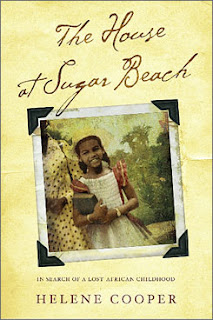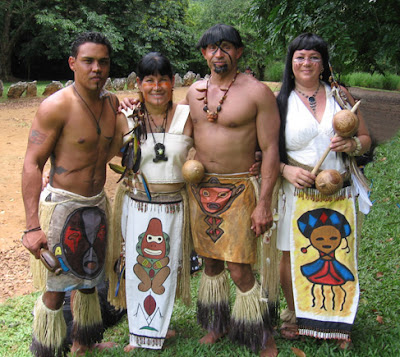George Washington and Barbados

I certainly wasn't expecting to learn about American history or George Washington while I was in Barbados but that's exactly what I did. I was surprised to discover that the Eastern Caribbean island played an important role in the course of American history. Besides supplying the settlers who founded North and South Carolina and about seven of the first governors for these states, Barbados was the only country visited by George Washington and the experience left a major impact on his life. The 18th century, two story, Georgian style house where George Washington lived in Barbados for seven weeks, has been restored into the George Washington House and Museum in Bridgetown.
Enveloped by lush gardens and balmy sea breezes that blow through the house, the museum presents a huge amount of information in an unlikely place. The rooms where George Washington lived are bare and utilitarian but the second floor boasts a life-size Washington that reads from his diary at the push of a button. George Washington was 19 when he journeyed to Barbados with his older, half-brother Lawrence, who was sick with tuberculosis. Barbados was known as a health spa and Lawrence's doctors recommended a stay in 1751. Although Lawrence had been educated in Europe, George had never left their Virginia home. Their father had died and George never got the education or exposure that benefited Lawrence. In Barbados, George witnessed his first fort, first theatrical performance and visited his first big city in Bridgetown. From the late 17th century until the mid 18th century, the major cities of the English speaking world were Boston, London and Bridgetown.
George also contracted small pox while he was in Barbados, leaving him immune to the disease. Small pox decimated the American Revolutionary army but George was unaffected and was able to organize the first mass inoculation against small pox for his troops. Bajans like to say that they saved George Washington for the presidency and the American Revolution. The museum's director also likes to say that not only did George Washington sleep in Barbados, but he woke up there. His small, provincial world was expanded and he was able to make contact with influential people in Bridgetown that would later guide his career. He never would have traveled in their circles in Virginia. This reminds me of the elitism debate that surfaced during the 2008 election. No matter what the party or platform, it's a fact that every 20th century U.S. president either came from affluent families or were educated or trained at elite institutions.
The museum also explores the history of slavery on Barbados and how the system has influenced history. A sculpture of Olaudah Equiano, the famous African who had been enslaved on Barbados and bought his own freedom, holds a prominent space on the second floor. Equiano moved to London and published his autobiography, The Interesting Narrative of the Life of Olaudah Eqiano or Gustavus Vassa, the African, in 1789. It became a bestseller and a touchstone in the slave narrative literary genre. It also kicked off the British abolition movement, of which Equiano was one of its most notable figures. Slavery was an issue that posed a moral dilemma throughout Washington's life. The exhibit examines Washington's position as the man who helped fight for America's freedom but who never gave freedom to the 300 enslaved Africans that he owned. According to the display, he considered it but decided that the undertaking would be too expensive. So "he left the question of slavery for another generation to solve."





Comments
Wendy-Barbados is dreamy!